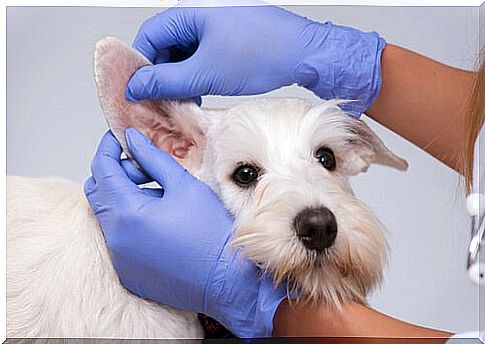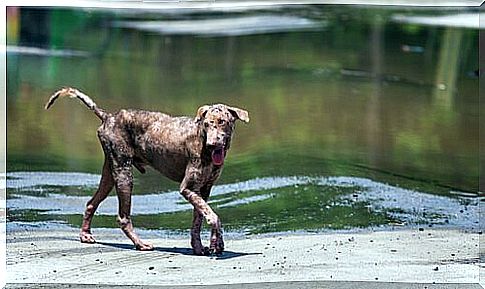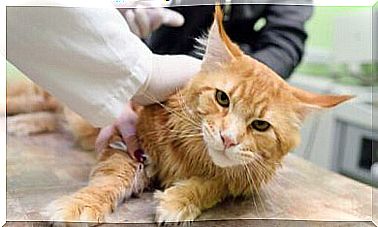Most Common Summer Infections: Protect Your Dog

Warmer days are perfect for outdoor activities and vacationing with your dog. But high temperatures also increase the need to reinforce the care and hygiene of dogs to avoid possible infections.
What are the main infections your dog can have in the summer?
When summer comes, many owners change their dogs’ routines and take them outdoors.
They are common: trips, sun, bathing in the sea or swimming pool, playing in the grass, etc.
These outings are a good option, since our dogs like to enjoy activities in our company.
And even better if they can discover new places with their human family and canine friends.
However, it is essential to take some preventive measures, so that all this fun does not pose a risk to your well-being.
Outdoor living ensures healthy entertainment, but it also means exposure to various pathogens.
Therefore, pet health problems multiply during the hottest season of the year.
Next, we’ll look at the main infections that can affect your dog in the summer and how to avoid them.
It is also advisable to consult your trusted veterinarian to identify any changes in your pet’s behavior or appearance.
Typical summer infections:
the tit
Ear infections and inflammation (otitis) in dogs are especially common during the summer.
Most owners increase their bathing frequency, as their pets tend to get dirty more easily outdoors.
In addition, dogs that like to bathe in the sea or in the pool are constantly wet.

All this favors the accumulation of moisture in the region of your ears and the proliferation of bacteria and fungi.
These microorganisms can cause inflammation and infections in the external and internal region of the ear canal (otitis). For this reason, the diagnosis of otitis increases a lot during the summer.
To prevent ear infections in your dog, you should dry his ears well after a bath or a day of fun in the pool.
It is advisable to use dry gauze or a clean cloth for optimal drying.
It ‘s also good practice to check your dog’s ears every two to three days to identify any symptoms.
In addition, it is recommended to clean every 15 days to maintain good hygiene in this area.
skin problems
The skin of our dogs is very sensitive and, during the summer, it is exposed to numerous risks.
Among these factors are the intensity of the sun’s rays, the proliferation of ectoparasites, sea salt, swimming pool chemicals, etc.

All of this can encourage the development of burns, allergies, inflammation and skin infections in our best friends.
Here are some preventive measures to prevent these problems from harming our best friend’s health:
- Apply sunscreen to avoid burns : excessive exposure to sunlight is very dangerous for us and also for our pets. In addition to causing burns, they increase the chances of skin cancer.
- Therefore, the daily use of sunscreen is essential to preserve the good health of our dogs in summer. We must remember that sunscreens for humans should not be applied to pets. In specialized stores, we can find sunscreens specially made for them.
- Avoid moisture build-up : we must dry the skin and fur of our dogs to prevent moisture build-up. The proliferation of bacteria and fungi favors the development of skin infections and inflammation. After a day at the pool or beach, he will need a good drying.
- Reinforce deworming : ectoparasites reproduce intensely with the arrival of high temperatures. This increases the likelihood that your dog will come into contact with fleas, ticks, mites and mosquitoes.
- In addition to causing severe itchiness and inflammation of the skin, these ectoparasites can transmit serious illnesses to your pet. Therefore, it is essential to reinforce deworming with the arrival of summer.
Gastrointestinal Infections
Variation in temperature, heat and dietary changes can cause gastrointestinal problems in our pets.
To avoid this, we must pay special attention to the dogs’ food and hydration during the summer.









